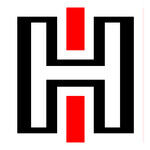The vibrant Latin verb "crescere" (to grow, swell) blooms blatantly in our words "increase" and "crescendo," but it lurks less obviously in other words as well.
When the ancient Romans took a break from their toga parties to look up at the sky, they noticed that the moon sometimes grew in size from night to night. So, deploying the present participle of "crescere," they called an enlarging moon a "luna crescens" (waxing moon). Eventually "luna crescens" came to refer to the pointed shape of the moon during both its first (waxing) quarter and its last (waning) quarter.
Centuries later, this meaning of "crescens" gave rise to the Old French word "croissant," meaning "any object shaped like the moon during its first and last quarters." Soon the French "croissant" leaped the English channel to enter English as "cressent" where it soon became "crescent."
For a while, "crescent" reflected both the "pointed-shape" meaning as well as the original "growing" meaning. In William Shakespeare's "Hamlet," for instance, Laertes tells Ophelia in a wrenching (crescent wrenching?) speech, "For nature crescent does not grow alone."
But how did "croissant" come to refer to a rich French pastry? Time for a side trip to Vienna!
When the German-speaking Viennese broke the siege of the Turks in 1683, they celebrated by baking a roll in the shape of the Turkish crescent. (Talk about devouring the enemy!)
The Viennese thought their creation looked like an animal horn, so they called it a "Hornchen" ("small horn"). But the French thought it looked more like a crescent moon, so they dubbed it a "croissant."
"Crescere" also gave rise to the Latin verb "adolescere" (to grow) which gives us the English word "adolescent" (one who — we hope! — is growing up).
And don't fall for the "verben" legend that "sincere" comes from "sine cera" (without wax). In fact, it derives from the Latin noun "sincerus," a combo of "sin-" (one) and "crescere" (to grow) and literally meant "of one growth," that is "whole, pure, untainted."
Another Old French word derived from "crescere" was "creue," which meant "an increase in military troops, reinforcement." This root gives us "recruit" (someone who increases the size of a group), "accrue" (to grow or accumulate), and "crew" (a group of people acting together). "Crew cut," which first appeared during the late 1930s, arose because the rowing crew at Harvard sported this short hairstyle.
"Oar" maybe it was Yale.
Rob Kyff, a teacher and writer in West Hartford, Conn., invites your language sightings. Send your reports of misuse and abuse, as well as examples of good writing, via e-mail to Wordguy@aol.com or by regular mail to Rob Kyff, Creators Syndicate, 737 3rd Street, Hermosa Beach, CA 90254.






View Comments